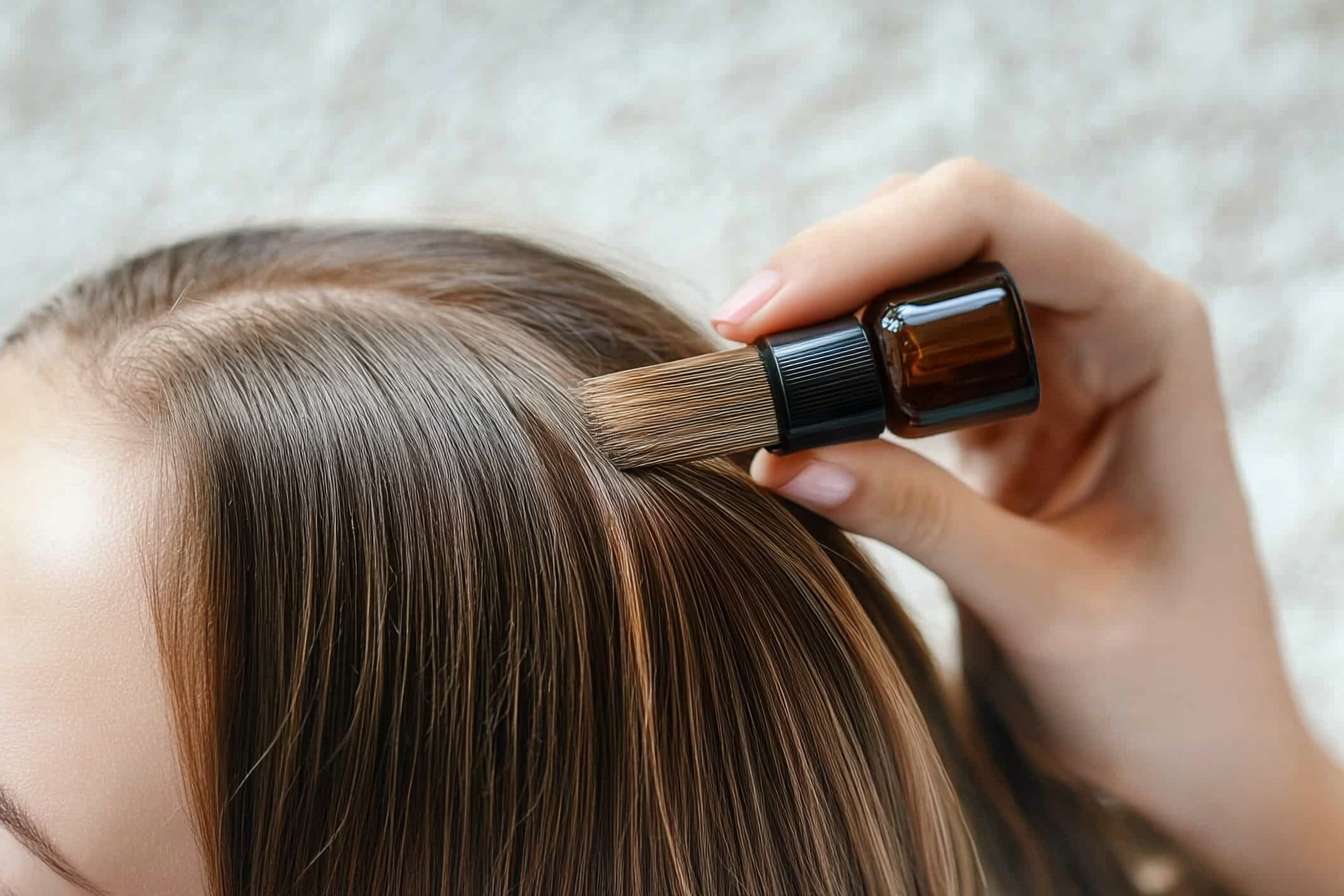Fermented Rice Water Hair Therapy: Ancient Wisdom for Modern Tresses
Hair care enthusiasts are constantly searching for the next breakthrough treatment, often overlooking centuries-old remedies hiding in plain sight. Fermented rice water, a beauty secret dating back to ancient Asian civilizations, has recently captured attention for its remarkable hair-transforming properties. This technique, practiced for over a thousand years by women in Japan and China, produces results that modern science is only beginning to understand. Unlike conventional treatments laden with synthetic ingredients, fermented rice water offers a natural alternative that nourishes from root to tip. The fermentation process enhances its beneficial properties, creating a potent elixir that addresses multiple hair concerns simultaneously. As consumers increasingly gravitate toward sustainable, natural beauty solutions, this ancestral practice stands at the intersection of tradition and innovation.

Historical Roots and Cultural Significance
The practice of using fermented rice water for hair care boasts an impressive lineage. In the Heian period of Japan (794-1185 CE), court ladies were renowned for their floor-length, lustrous black hair, which they maintained using rice water. Historical records indicate these women would wash and rinse their hair in the water left over from cleaning rice. Similarly, the Yao women from Huangluo village in China – famous for their remarkably long hair averaging six feet – have used fermented rice water for generations. This village earned its place in the Guinness World Records as the “world’s longest hair village.” The practice was considered not just a beauty ritual but a sacred tradition passed down through generations, connecting beauty practices with cultural identity and ancestral wisdom. Archaeological evidence suggests similar practices existed in other rice-cultivating societies throughout Asia, indicating a widespread understanding of rice water’s benefits long before modern cosmetic science.
The Science Behind Fermentation
Fermentation transforms ordinary rice water into a potent hair treatment through fascinating biochemical processes. When rice water ferments, beneficial microorganisms convert carbohydrates into organic acids, particularly lactic acid and acetic acid. These acids create an acidic pH environment (around 4.5-5.5) that closely matches the natural pH of hair, helping to close the cuticle and increase shine. During fermentation, the concentration of antioxidants increases significantly, with studies showing up to a 4-fold increase in phenolic compounds compared to non-fermented rice water. The process also generates pitera, a cocktail of vitamins, minerals, amino acids, and organic compounds that penetrate the hair shaft more effectively than their non-fermented counterparts. Research published in the International Journal of Cosmetic Science indicates that the specific strain of yeast responsible for fermentation, Saccharomycopsis, produces enzymes that break down the proteins in rice into smaller peptides and amino acids that can more readily bond with hair proteins, strengthening the follicle structure from within. This scientific understanding explains why traditional communities intuitively allowed rice water to ferment before application.
Nutrient Profile and Hair Benefits
Fermented rice water contains an impressive array of bioactive compounds that directly benefit hair health. The starch from rice breaks down during fermentation into oligosaccharides and simple sugars that coat hair strands, providing slip and detangling properties while reducing friction between individual hairs. Inositol, a carbohydrate present in high concentrations in fermented rice water, penetrates damaged hair and remains inside the shaft even after rinsing, providing ongoing repair and protection. Amino acids like cysteine, lysine, and methionine help fortify the hair’s keratin structure, while B vitamins including niacin and thiamine stimulate blood flow to the scalp, potentially encouraging hair growth. Trace minerals including selenium, magnesium, and zinc support cellular functions necessary for healthy follicle activity. Perhaps most significantly, fermented rice water contains a unique complex of antioxidants that combat free radical damage from environmental stressors like UV radiation and pollution, which typically accelerate hair aging and protein degradation. These nutrients work synergistically to address multiple hair concerns simultaneously, from porosity issues to growth stimulation.
Traditional Preparation Methods
Creating authentic fermented rice water requires attention to detail and patience, following methods refined over centuries. Begin with half a cup of uncooked organic rice—white, brown, or red varieties all work, though each imparts slightly different properties. Rinse thoroughly to remove surface impurities, then place in a clean glass bowl with two cups of filtered water. Some traditional practitioners massage the rice gently in water for several minutes to release more nutrients. After straining out the rice (which can still be cooked), the resulting cloudy water is transferred to a clean glass jar with a loose-fitting lid to allow gases to escape during fermentation. Traditional methods call for adding a catalyst—commonly a slice of orange peel, a tablespoon of reserved fermented rice water from a previous batch, or even a few jasmine flowers—to jumpstart beneficial bacterial activity. The mixture is then left to ferment at room temperature for 24-48 hours, depending on the ambient climate. Proper fermentation is indicated by a slightly sour aroma and mildly acidic taste. After the fermentation period, the solution should be diluted with equal parts water before application. In mountainous regions of Japan and China, practitioners often added specific local herbs to enhance properties targeting particular hair concerns, creating regionally-specific variations of this fundamental technique.
Modern Adaptation and Clinical Evidence
Contemporary research validates what traditional practitioners have known for centuries. A 2010 study published in the Journal of Cosmetic Chemists found that rice water extracts can decrease surface friction and increase hair elasticity by up to 50 percent compared to untreated hair. Clinical trials conducted in 2018 at a dermatological institute in Mumbai documented a 15 percent increase in hair strength and a measurable reduction in breakage after eight weeks of regular fermented rice water treatments. The modern beauty industry has taken notice, with specialized formulations now incorporating fermented rice water in products ranging from shampoos to leave-in treatments. These commercial adaptations often enhance the traditional formula with complementary ingredients like hyaluronic acid for moisture retention or panthenol for additional strengthening benefits. Beauty technologists have also developed stabilization methods to preserve the active compounds for longer shelf life without compromising efficacy. Trichologists increasingly recommend fermented rice water treatments as part of holistic hair care regimens, particularly for clients experiencing thinning, breakage, or dullness. The most compelling evidence comes from controlled split-head studies, where researchers observed significant improvements in hair diameter, tensile strength, and cuticle integrity on the side treated with fermented rice water compared to conventional treatments.
Integration Into Modern Hair Care Routines
Incorporating fermented rice water into contemporary hair care requires strategic application to maximize benefits. For optimal results, most experts recommend using it as a final rinse after shampooing, allowing it to remain on the hair for 5-20 minutes before rinsing with cool water to seal the cuticle. Those with protein-sensitive hair should limit treatments to once weekly, while others may benefit from bi-weekly applications. The solution can also be transferred to spray bottles for daily leave-in application, focusing on the roots and mid-lengths rather than ends to avoid potential protein overload. Many practitioners complement rice water treatments with scalp massages using warm oil beforehand to enhance blood circulation and nutrient delivery to follicles. The treatment integrates seamlessly with other natural hair care practices like oil pre-washes or clay detoxification treatments. For color-treated hair, fermented rice water helps maintain vibrancy by sealing the cuticle and preventing color molecules from leaching out during washing. The versatility of fermented rice water makes it suitable for all hair types, though those with very fine hair may need to adjust the concentration to avoid weighing down strands. As with any treatment, consistency yields the most dramatic results, with most users reporting noticeable improvements in shine, strength, and manageability after 4-6 weeks of regular application.






